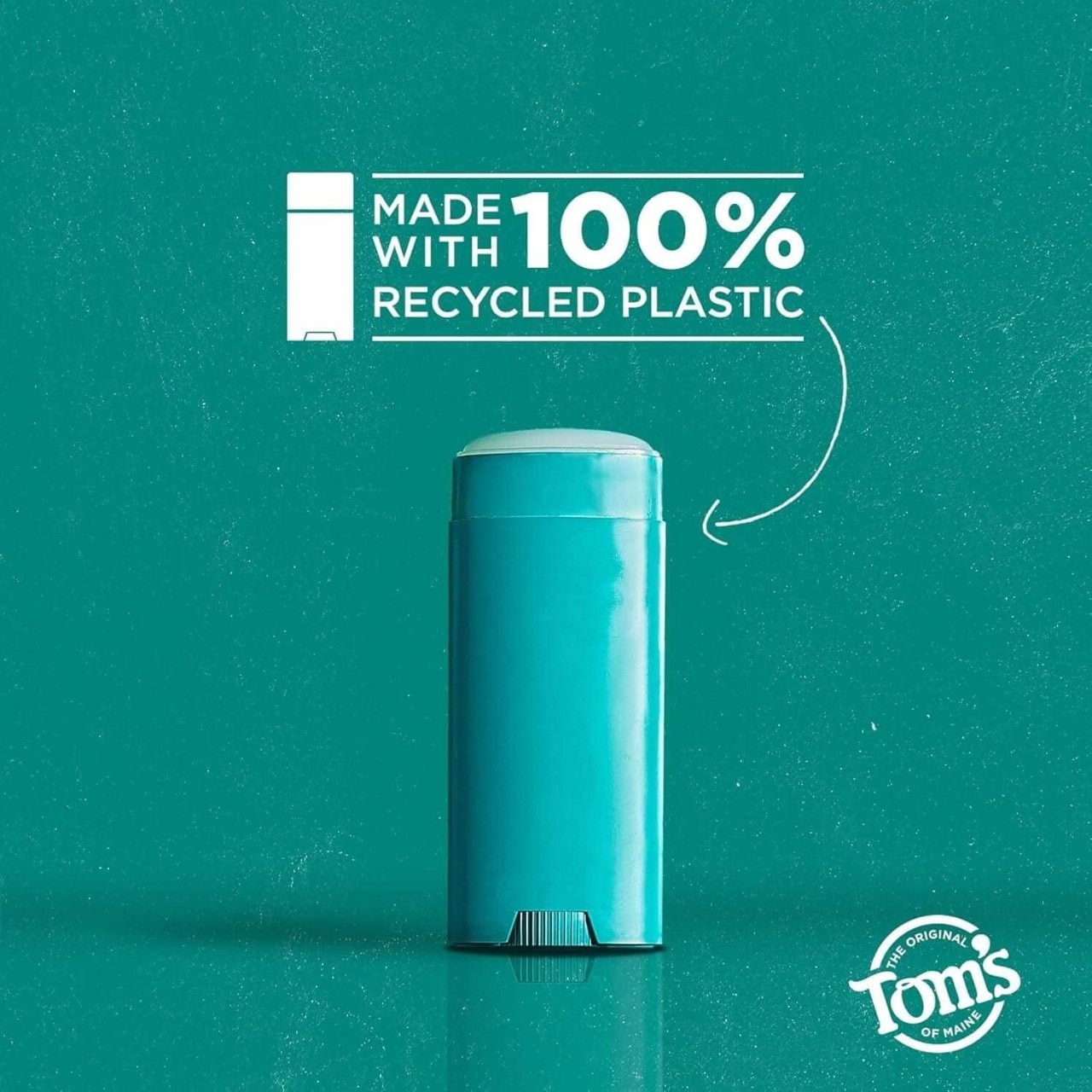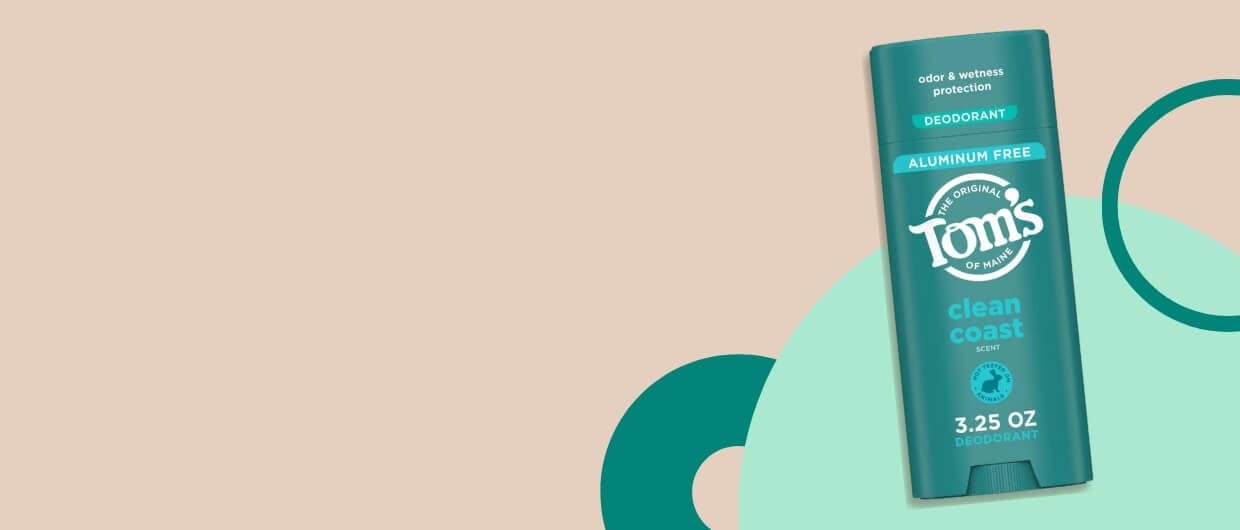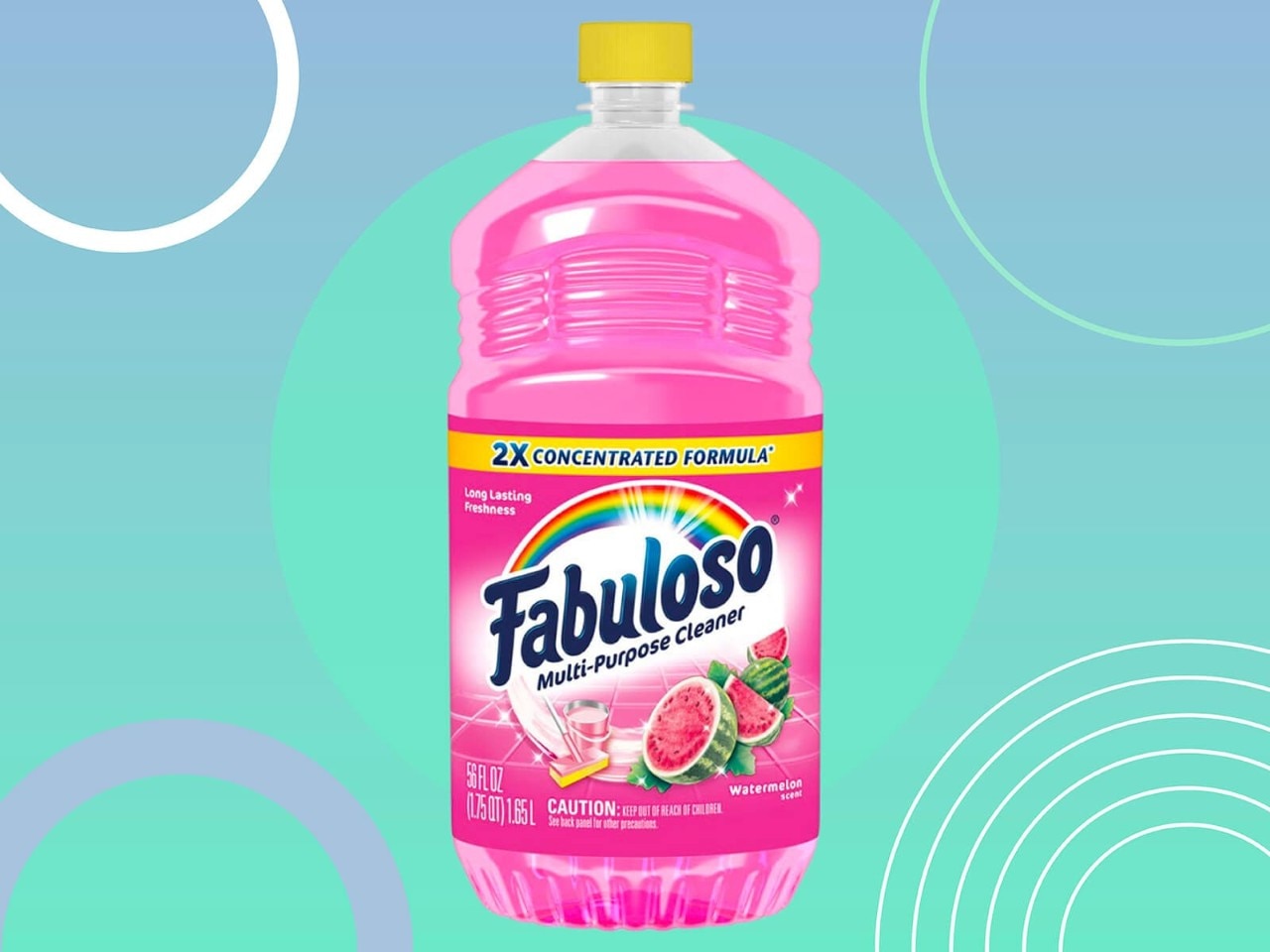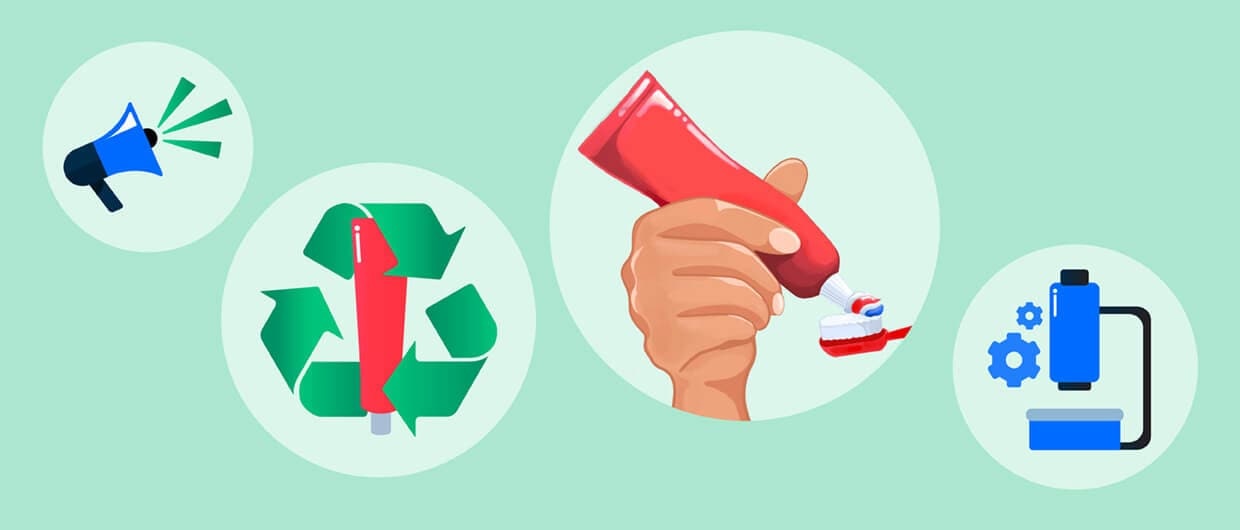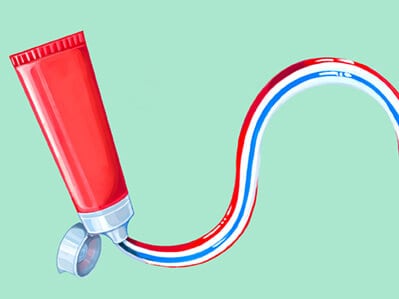When Tom and Kate Chappell founded Tom’s of Maine in 1970, their goal was clear: create natural personal care products that were simple, natural and free of artificial flavors, fragrances, colors and preservatives.
Five decades later (and now a member of the Colgate Palmolive family), Tom’s of Maine continues to fulfill its mission of providing safe, effective, and innovative natural products—a standard that is congruent with Colgate-Palmolive’s purpose of reimagining a healthier future for all people, their pets and our planet.
But while Tom’s of Maine has always been about creating natural and effective products, the team behind it knows there is always room to exhibit the brand’s values better. That continuous improvement mentality encouraged the team to turn their attention to Tom’s of Maine Deodorant and Antiperspirant, which, as of spring 2024, is packaged in a container made from 100% recycled content plastic and the formula is enhanced for better protection against odor and wetness.

For a brand that can be found nationwide at retailers like Walmart, Target, Whole Foods and Amazon, change at this scale couldn’t occur overnight. “This was very intentional, thoughtful innovation,” said Jaz Foster, Consumer Insights Manager for Tom’s of Maine. “Solving a problem like this and providing value takes time.”
The shift towards packaging sustainability and improved product efficacy represents a significant leap forward in natural personal care, signaling a new era for the brand and its commitment to environmental responsibility.
“We knew that implementing 100% recycled-content containers might cost more and create a new set of challenges—but we knew it was the right thing to do,” said Dan Peters, Packaging Leader at Tom’s of Maine. “It’s our way of showing the brand’s commitment to not just use but promote recycling in our products.”
The catalyst for change
The natural personal care products market has grown substantially over the past decade. But in 2024, consumers demand more than just natural ingredients—they expect that products, from the packaging to the formula, are also efficacious and sustainable.
“There was a time when people understood that there would be a trade-off between natural and effective products,” Foster said. “Now, as consumers’ preference for natural products grows, so do the expectations, and we have risen to meet them.”
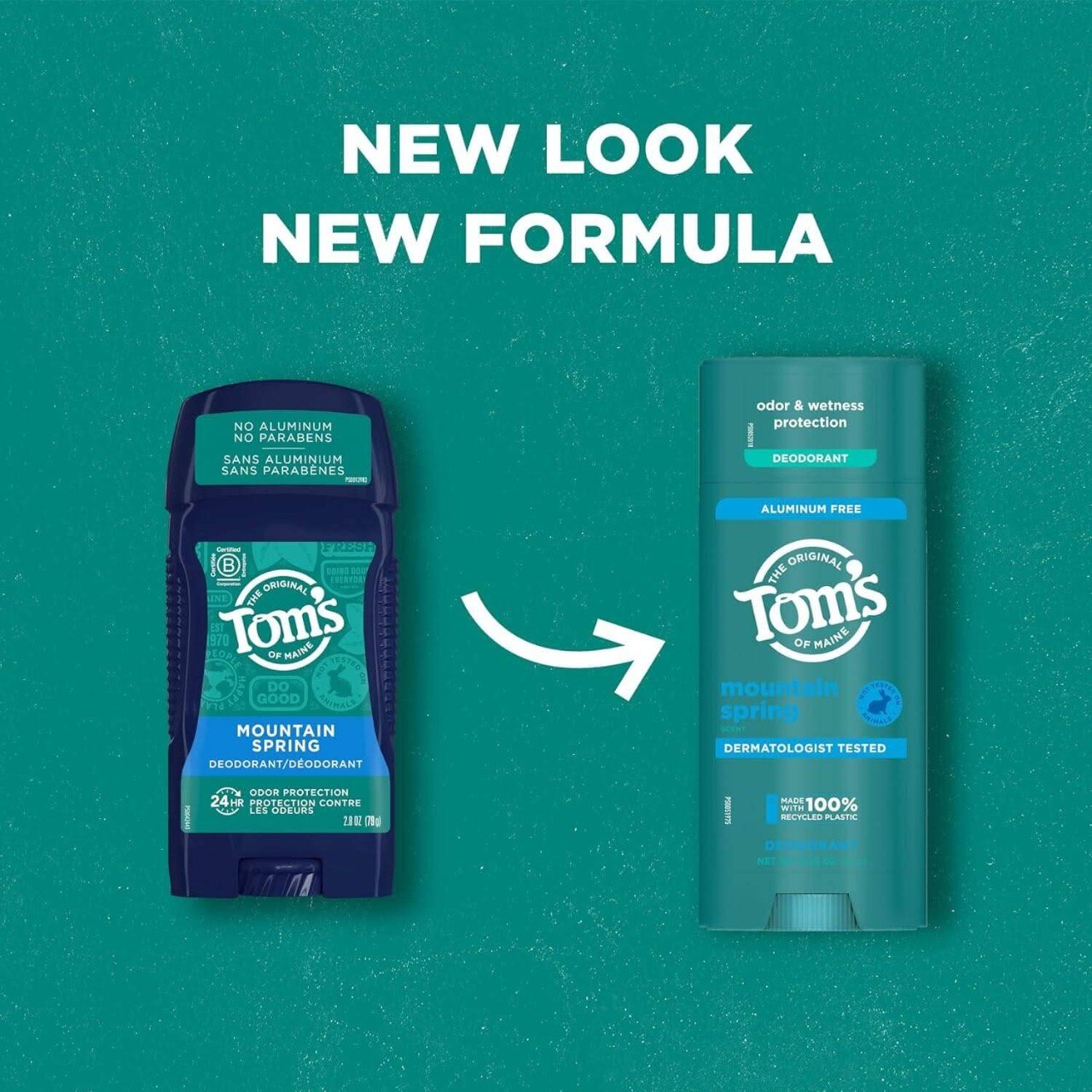
The new standard encouraged Tom’s of Maine to go to consumers and gather real insights on improving the deodorant and antiperspirant formula and scents.
“We recognized early on that understanding consumer feedback was crucial,” said Paul Jessen, Senior Brand Manager of Personal Care Innovation at Tom’s of Maine. “Sustainability and effectiveness are non-negotiable, but so is the user experience. We didn’t just want to create a better deodorant for the planet—we wanted to create a product that people loved to use daily.”
The revamped formula boasts wetness protection in addition to 48 hours of odor protection and comes in a spectrum of 11 scents, including Clean Coast, Coconut Mango, Cucumber Aloe, Eucalyptus Mint, Lemongrass Tea Tree, Mountain Spring, North Woods, Rose Vanilla, Sandalwood Vanilla, Unscented and Wild Lavender. The antiperspirant line is available in two scents, Cucumber Aloe and North Woods.
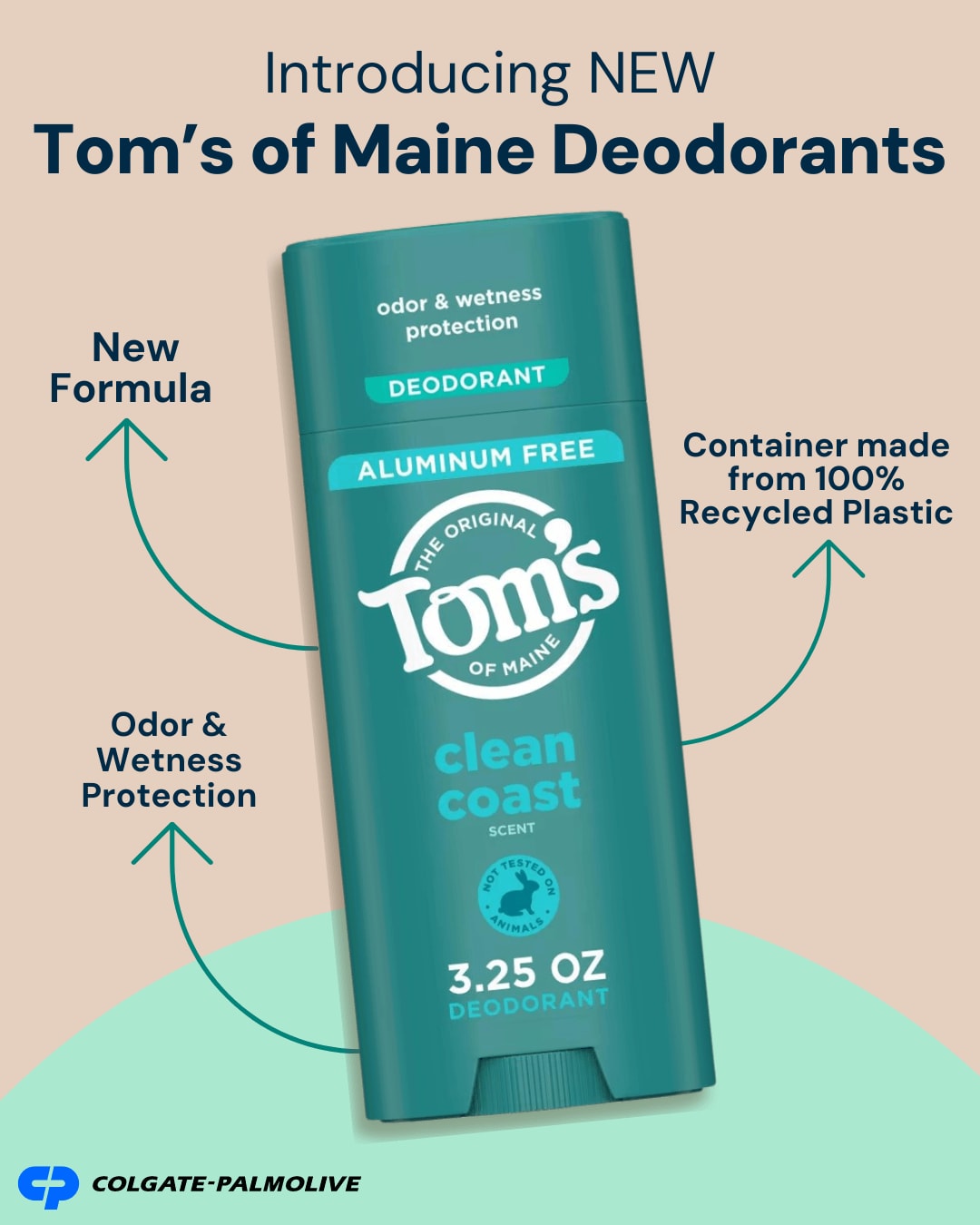
Regarding the brand’s packaging, Tom’s of Maine previously collaborated with a U.S.-based packaging supplier to develop a custom, unisex container featuring 100% recycled content. “Once we were all clear on the vision to move to 100% recycled packaging and what it would deliver, everyone came on board and worked toward the same end goal,” Peters said.
A sustainable path forward
Soon, Tom’s of Maine and its packaging supplier landed on a structure 100% made from recycled polypropylene. Combined with the partnership with The Recycling Partnership (by joining the Polypropylene Coalition), Tom's of Maine is funding TRP projects across the United States to increase access to polypropylene recycling. These are “steps toward improving circularity and increasing the recycling rate and the recyclability of personal care packaging,” Jessen said.
